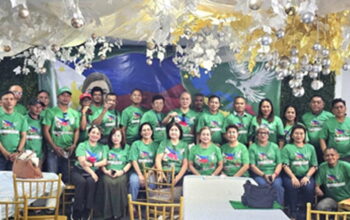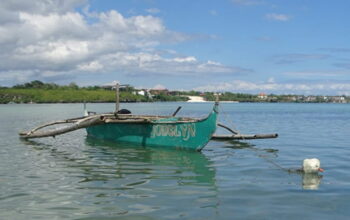
IN A bid to effectively prevent monkey pox (MPOX) from spreading across the province, Gov. Aris Aumentado created the Bohol MPOX Task Force by way of Executive Order No. 28, series of 2025.
World Health Organization (WHO) defines “Mpox, previously known as monkeypox, is a viral illness caused by the monkeypox virus, a species of the genus Orthopoxvirus.”
It appears that the issuance of said EO is an attempt to contain the virus after two cases are reported in Cebu and Southern Leyte.
Report said that a suspected MPOX has been documented in Mandaue City on May 29 with a 39-year old man, according to Mandaue City Health Office, saying it’s “due to lesion that has persisted for over a week. A specimen sample was immediately taken from the patient to check if it is a case of Mpox.”
As of today, May 30, 2025, our local health officials report one (1) suspected MPOX case under close monitoring and subjected to confirmatory testing. The patient is a 55-year-old female and is currently in isolation. Intensive contact tracing is currently underway. In the meantime, we have reimposed the mandatory use of face masks, physical distancing, and basic health protocols to the general public to ensure the health and safety of our community. Stay informed, and let’s prevent the spread of the virus, based on Nacional V. Mercado’s post of southern Leyte.
Public health advisory has been issued to the people “to immediately isolate if they notice suspicious skin lesions, avoid crowded places, practice regular handwashing, and wear face masks as preventive measures.”
Provincial Health Office thru Dr. Fruserma Mae Uy has issued public health advisory for all health reporting units and hospital, private included, to intensify the information and education drive on MPOX. And to ensure early consultation and isolation when symptoms are observed.
“The common symptoms of Mpox are skin rash or mucosal lesions, which can last 2-4 weeks. The rashes are accompanied by fever, headache, muscle aches, back pain, low energy, and swollen lymph nodes. Anyone can get Mpox,” DOH said.
The Task Force is composed of the governor as chair, with Provincial Health Office, Department of Health, Sangguniang Panlalawigan health committee, hospitals chiefs, Phil National Police, Phil Coast Guard, Bureau of Fire Protection, Phil Ports Authority, League of Municipalities of the Philippines – Bohol chapter, Bohol Medical Society, Association of Municipal Health Officers and other agencies concerned.
Its tasks include the formulation of response mechanisms, monitor the situation, prioritize preventive measures, public awareness, equip the emergency response teams, among others.
Some of the frequently asked inquiries:
What is the cause of monkeypox?
Mpox is caused by the monkeypox virus (MPXV). It is an enveloped double-stranded DNA virus of the Orthopoxvirus genus in the Poxviridae family, which includes variola, cowpox, vaccinia and other viruses.
Can mpox be cured?
Mpox is usually self-limiting and most people recover without specific treatment. While there is no specific FDA-approved treatment for mpox, supportive care and antiviral medications approved for other viral infections can be used, especially in cases of severe illness.
In most cases, mpox resolves on its own within 2 to 4 weeks, and individuals usually make a full recovery.
How did people get monkeypox?
Through small wild animals in West and Central Africa, where mpox is endemic (found naturally). Direct close contact with an infected animal, fluids or waste, or getting bitten or scratched. During activities like hunting, trapping, or processing infected wild animals in areas where mpox is endemic.
How to avoid monkeypox?
To avoid monkeypox, prioritize vaccination and practice careful hygiene. Vaccination, particularly with the Jynneos vaccine from CDC, is the most effective way to reduce your risk. Additionally, avoid close physical contact, including skin-to-skin contact, with individuals who have a rash or other symptoms of monkeypox. Practice good hand hygiene by washing your hands frequently with soap and water, especially after potential contact with infected individuals or surfaces. (rvo)



